They Never Talked About Having Kids — Now It Might Tear Them Apart
In long-term relationships, certain fundamental differences can emerge that challenge the very foundation of the partnership. One such critical divergence is the desire to have children. A 29-year-old woman finds herself at this crossroads with her 32-year-old husband after nearly a decade together. Initially, discussions about children were superficial, with both partners appearing ambivalent. However, as time progressed, the husband’s desire for parenthood solidified, while the wife remained steadfast in her decision to remain child-free. This impasse has led to emotional turmoil, with both partners grappling with feelings of resentment, misunderstanding, and uncertainty about their future together.
In any relationship, one of the most essential foundations is being on the same page about certain things

The author and her husband have been together for ten years but officially married for three years





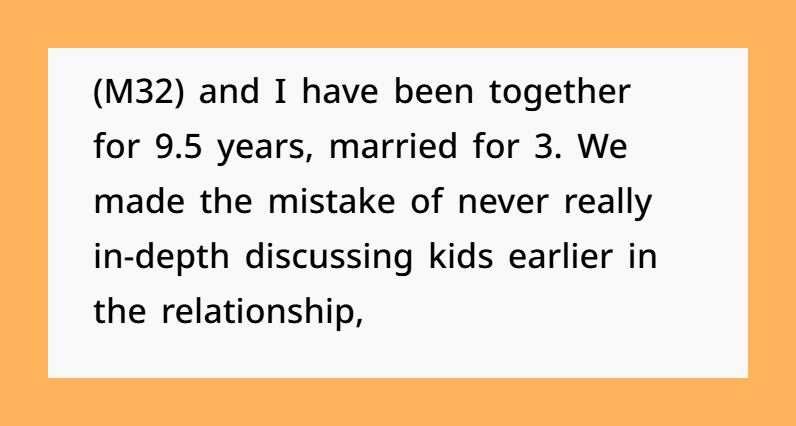



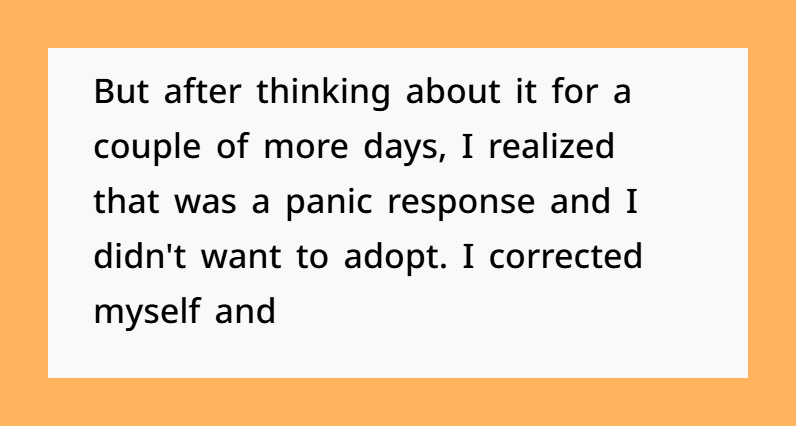

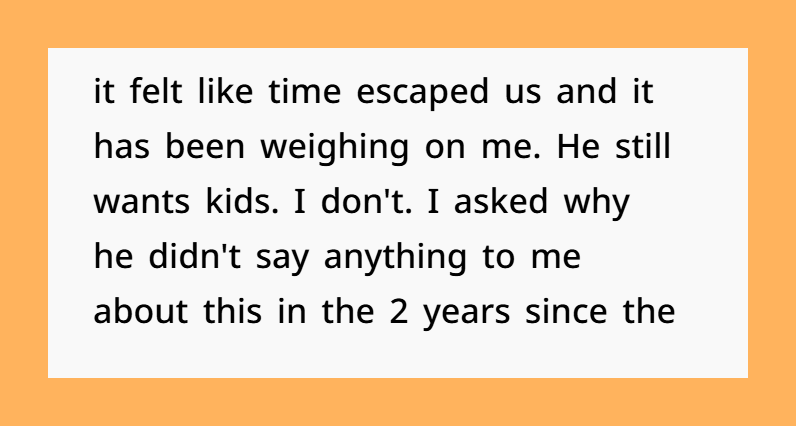
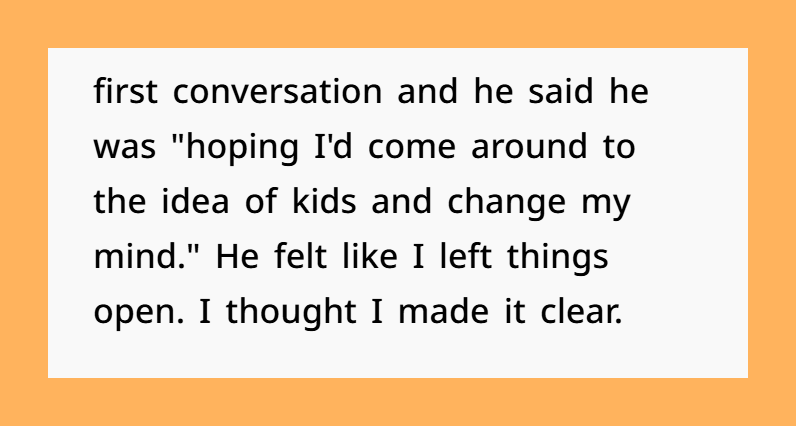
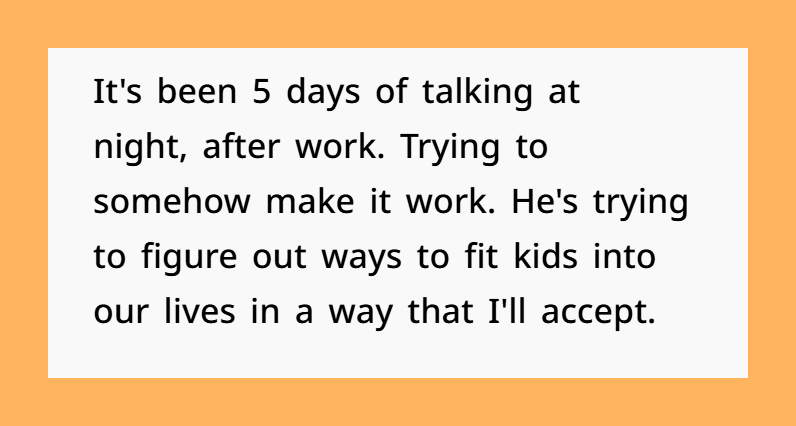
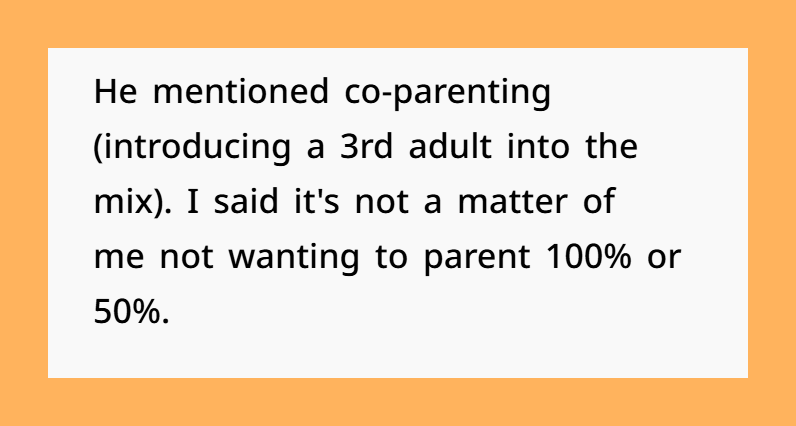
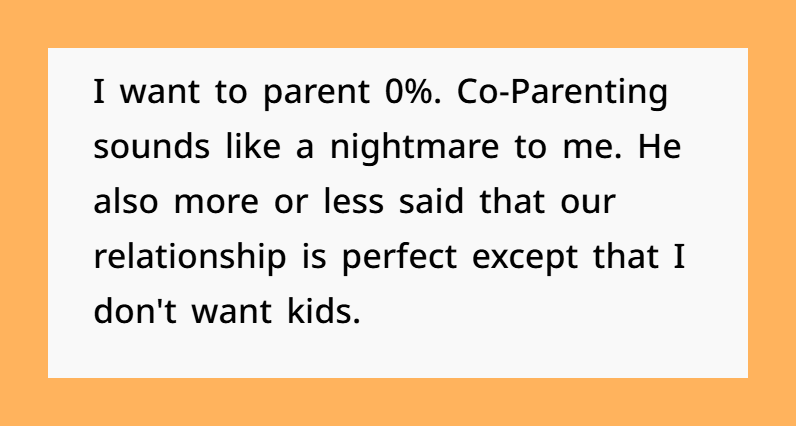

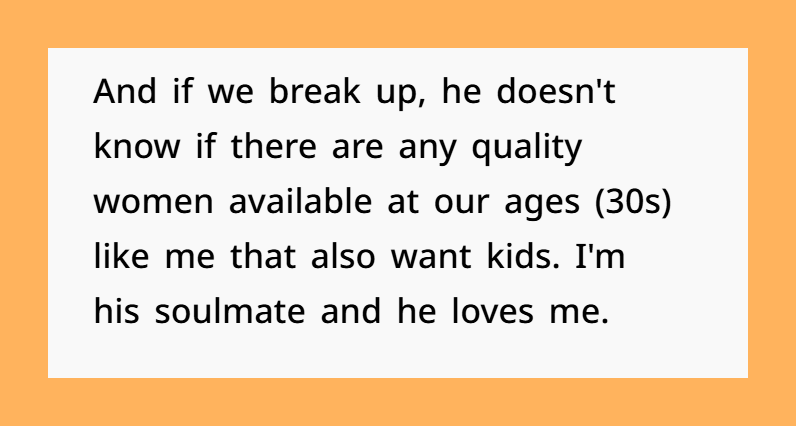

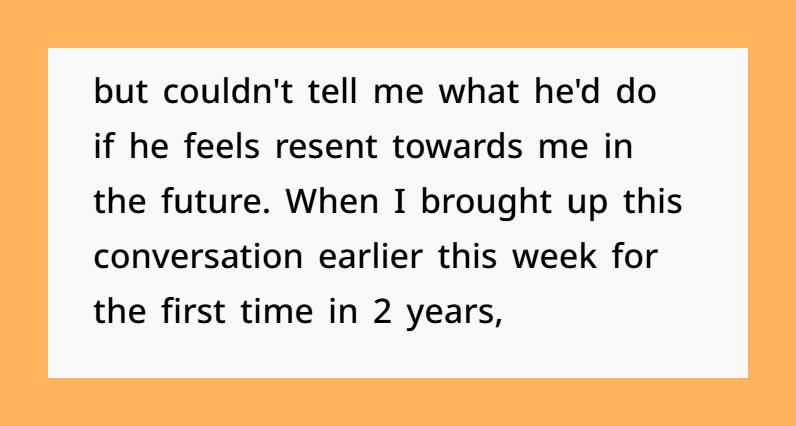



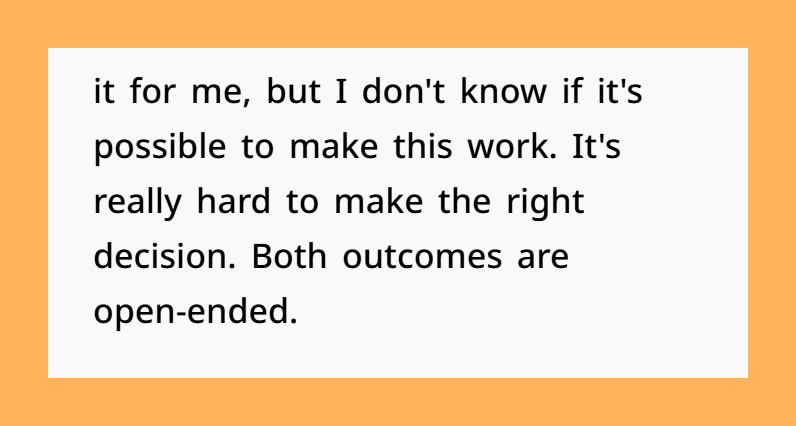

Understanding the Gravity of the Decision
The decision to have children is among the most profound choices a couple can face. It impacts not only the individuals involved but also the trajectory of their shared life. When partners have opposing views on this matter, it often leads to significant emotional distress and can threaten the stability of the relationship. As highlighted by Verywell Mind, “The decision to have children or not is a life-changing one, and differing desires can be a significant source of conflict in relationships.”
The Importance of Open Communication
Effective communication is paramount when addressing such fundamental differences. Partners must engage in honest, empathetic dialogues to understand each other’s perspectives fully. This involves not only expressing one’s desires but also actively listening to the partner’s feelings and concerns. According to Relate, “One person wanting kids and the other not can feel like a problem, but it doesn’t always have to be. The best thing to do is to sit down and talk openly and non-judgmentally with your partner about it.”
Seeking Professional Guidance
When personal discussions reach an impasse, seeking the assistance of a couples therapist can be beneficial. A trained professional can facilitate conversations, helping partners explore their feelings, underlying motivations, and potential compromises. As noted by GoodTherapy, “The decision to become a parent or remain child-free is personal, and it shouldn’t be compromised for a person who truly wants it (or does not want it). The resentment that often develops when partners cannot agree is a danger to the relationship, and it can be difficult to overcome.”

Considering Individual Fulfillment and Potential Resentment
It’s crucial for both partners to reflect on their personal fulfillment and the potential for future resentment. Compromising on such a significant life decision can lead to feelings of dissatisfaction and regret. As discussed in The Guardian, “It’s important to have an open and honest conversation with your partner about your feelings and needs, possibly with the help of a couples therapist. Exploring shared dreams together is essential.”
Exploring All Options
While the decision appears binary—have children or not—there may be alternative paths to consider. These could include fostering, mentoring, or engaging in roles that involve children without full-time parenting responsibilities. However, both partners must be genuinely comfortable with any chosen alternative to prevent future discord.
However, he also mentioned that he couldn’t promise that he wouldn’t resent her down the line, and netizens suggest it might be a waste of time
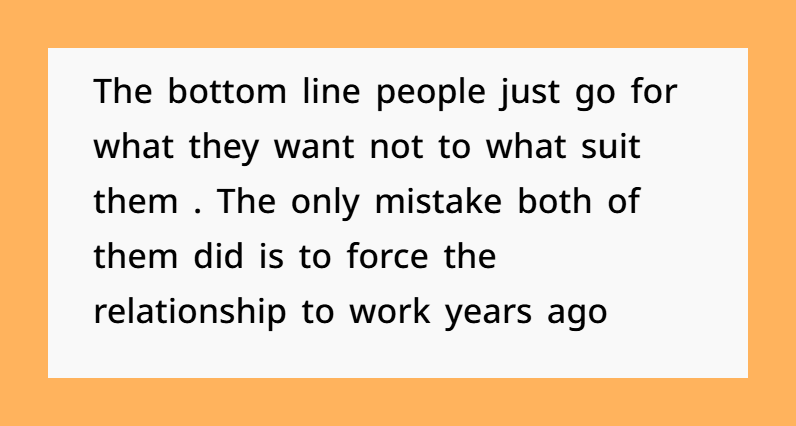
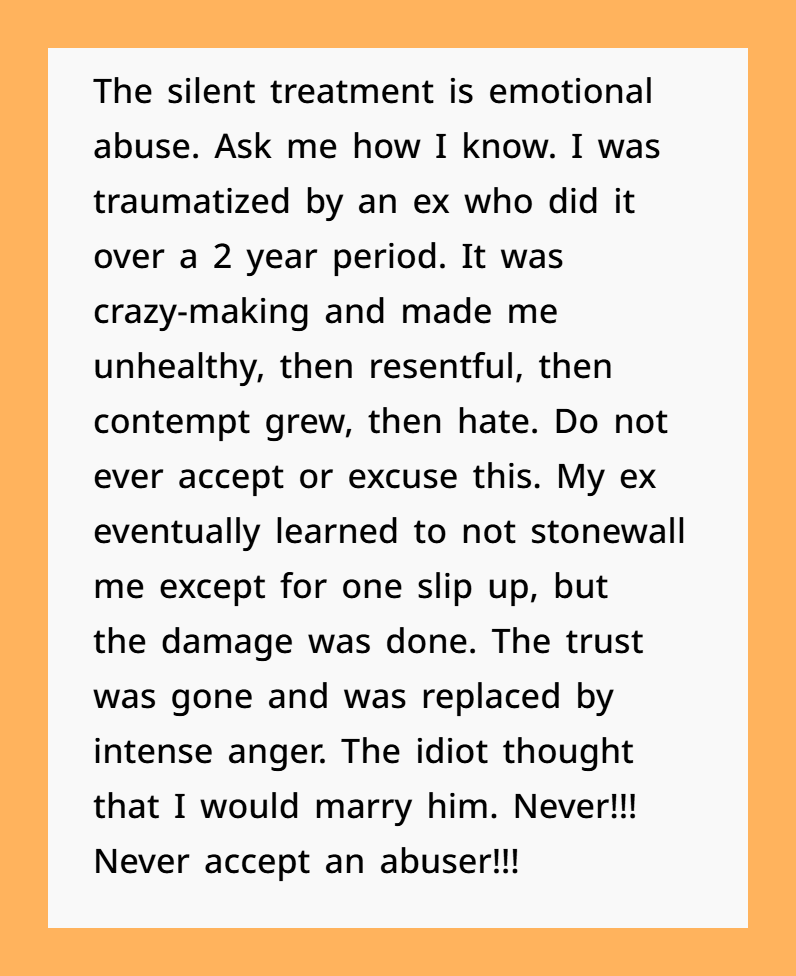

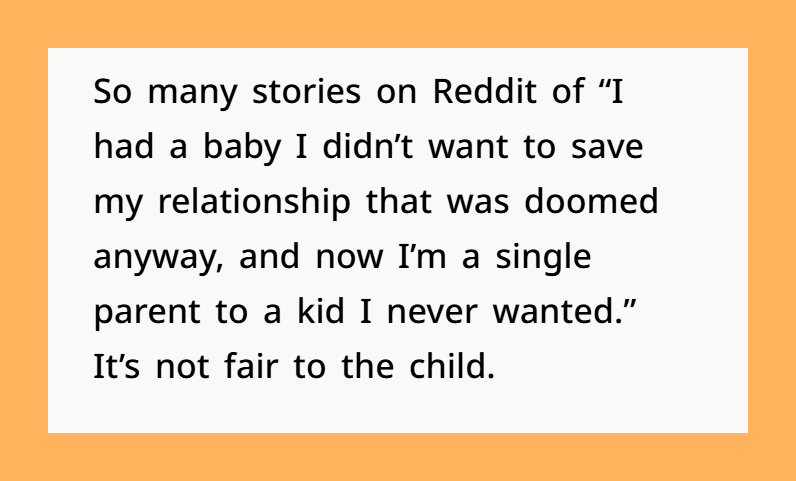
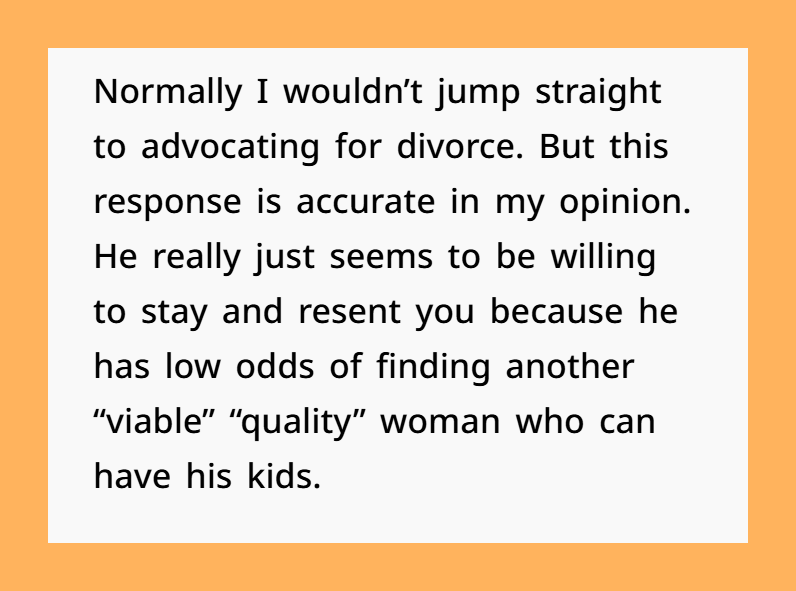


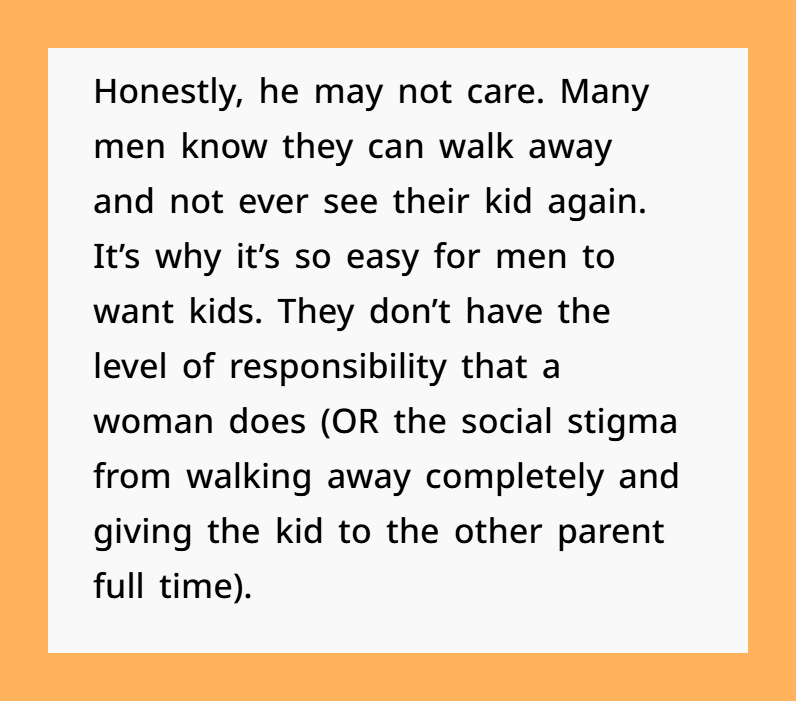
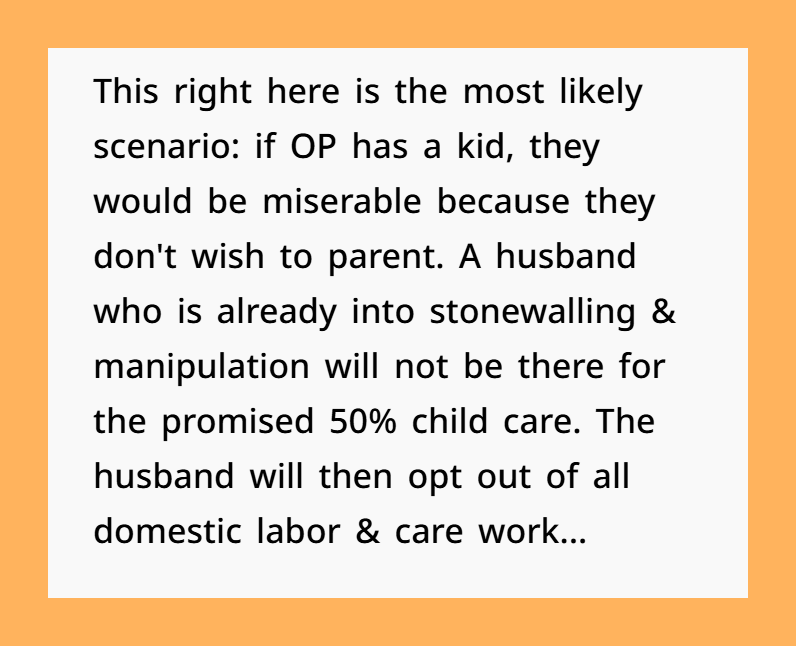
Diverging desires regarding parenthood present a formidable challenge in relationships. Navigating this complex issue requires introspection, open communication, and often professional guidance. Both partners must assess their priorities, values, and the potential impact on their future happiness. While love and shared history are powerful bonds, aligning on fundamental life goals is essential for long-term compatibility and fulfillment.

